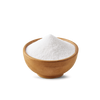
Proven to Help You Relax
We are all about relaxation here at Health As It Ought To Be.
Stress, though needed to develop healthily, can actually be pretty detrimental to our health too.
Which is why you want to do what you can to promote relaxation.
One of the best ways to sink into relaxation is meditation, another is by exercising, and another is having enriching relationships (as well as getting off social media).
And one more great way to promote relaxation is by ensuring you don’t become deficient in magnesium.
As Dr. Wiggy has pointed out, magnesium is one of those minerals you absolutely must have in order to maintain maximum relaxation. And no, we’re not talking about sitting on the beach with a drink in your hand kind of relaxation.
What we mean is that magnesium helps to relax your muscles so that you can function properly. And most people are deficient in it, which means they’re actually not able to relax fully, and this can lead to being overstressed and could lead to a state of dishealth!
Our Magnesium Malate is one of the best relaxation pills you could ever hope to have if you’re deficient in magnesium.
It’s super concentrated and it’s really easy for your body to absorb.
Now, let’s talk about how you could benefit from its relaxation power!
Why Magnesium Is So Great For Relaxation
When we talk about relaxation, most of you likely picture yourself without a care in the world.
We wish that this pill (we only call it a pill since that’s how it’s served to you, it’s really a mineral that you can find in your food and water), would do that for you.
But it can’t, and that’s actually OK - because then it’d be a drug and we don’t want you hooked on drugs!
What it does is flows through your body and helps relax muscles and also helps your nervous system and your neurological system work well.
For instance, magnesium is actually what helps your heart relax so it can then spring back up and beat again. Without magnesium your heart actually works extra hard and that creates stress on your cardiovascular system.
The same is true of your muscles, too.
Specifically, magnesium helps with ion transportation.
When you take magnesium (or rather, when you have enough of it in your body through food) magnesium will interact with your cell’s membranes and then bond with specific receptor sites on your cell membranes.
Once it does this, it actually helps to open up the cell membrane and then facilitates the passage of other minerals into your cells (like calcium and potassium) which are responsible for regulating muscle contractions and might ease muscle tension.
That’s why if you take it, you can actually feel your muscles relax as most people have plenty of calcium and potassium in their bodies already…
And this is why it’s helpful to get enough of it in your body, it is helpful for you (as well as the ones you love).
You should see what else Dr. Wiggy has written about magnesium so you can see how well it works!
And if you already know (because you’re smart like that), then just follow this link to get some!




